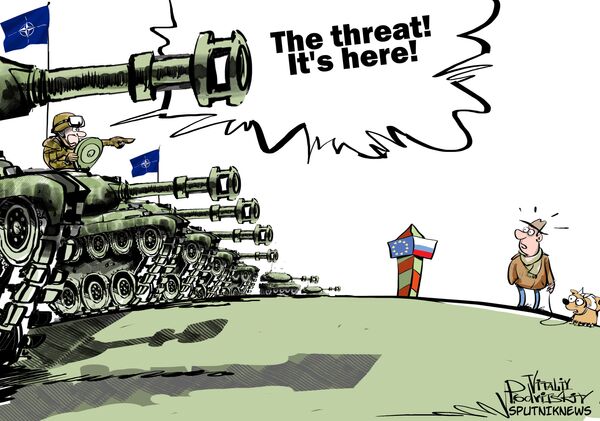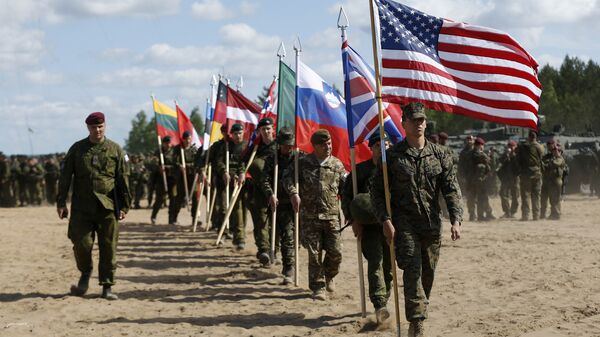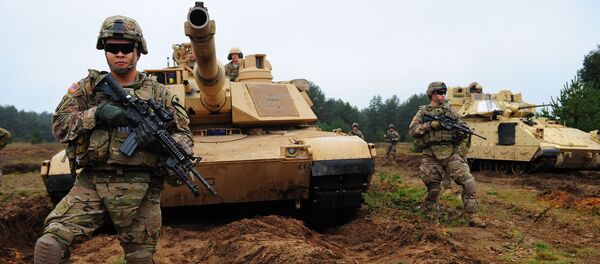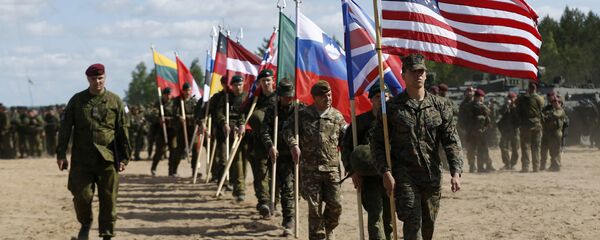The US is expected to deploy an additional armored brigade and position some of its most modern military hardware in Eastern European countries and the Baltics. The announcement came a month after the Pentagon revealed its plans to quadruple its 2017 budget for European defense.
"If Russia is as provocative and aggressive [as the US claims], I have a question: why has the US postponed the deployment until February 2017? If the [Russian] threat was as major as the US paints it, the deployment should have taken place much earlier," the German MP of the Left Party noted.
Dr. Neu offered his take on this "inconsistency." He maintains that it points to the fact that the "Russian threat" is not an issue. "The US has blown this imaginary threat out of proportion. It is an attempt to increase the anti-Russian sentiment in Europe," he said.

For the German politician this explanation is simply false.
"I just don't see it – this Russian aggression," he said. "Crimea is surely a point of controversy that could be assessed in a number of ways under the international law. I have my own assessment, particularly considering the West's role in breaking up Yugoslavia and the subsequent independence of former Yugoslav republics, including Kosovo. One cannot apply a different logic to what happened with Crimea."
The latest Pentagon's announcement, according to the German politician, could indicate that the US is trying to contain Russia because Moscow does not want to follow what the West wants it to do.



